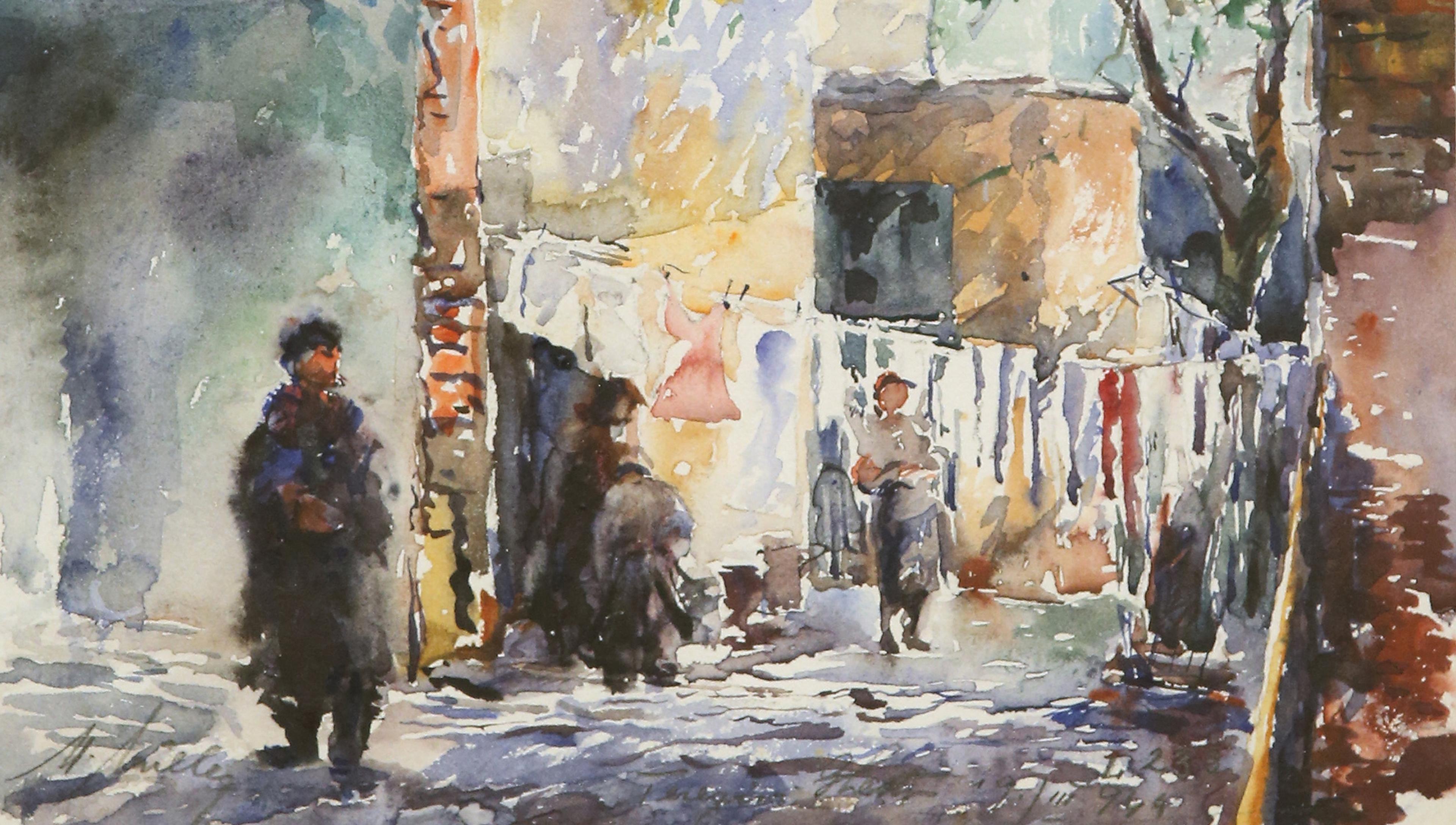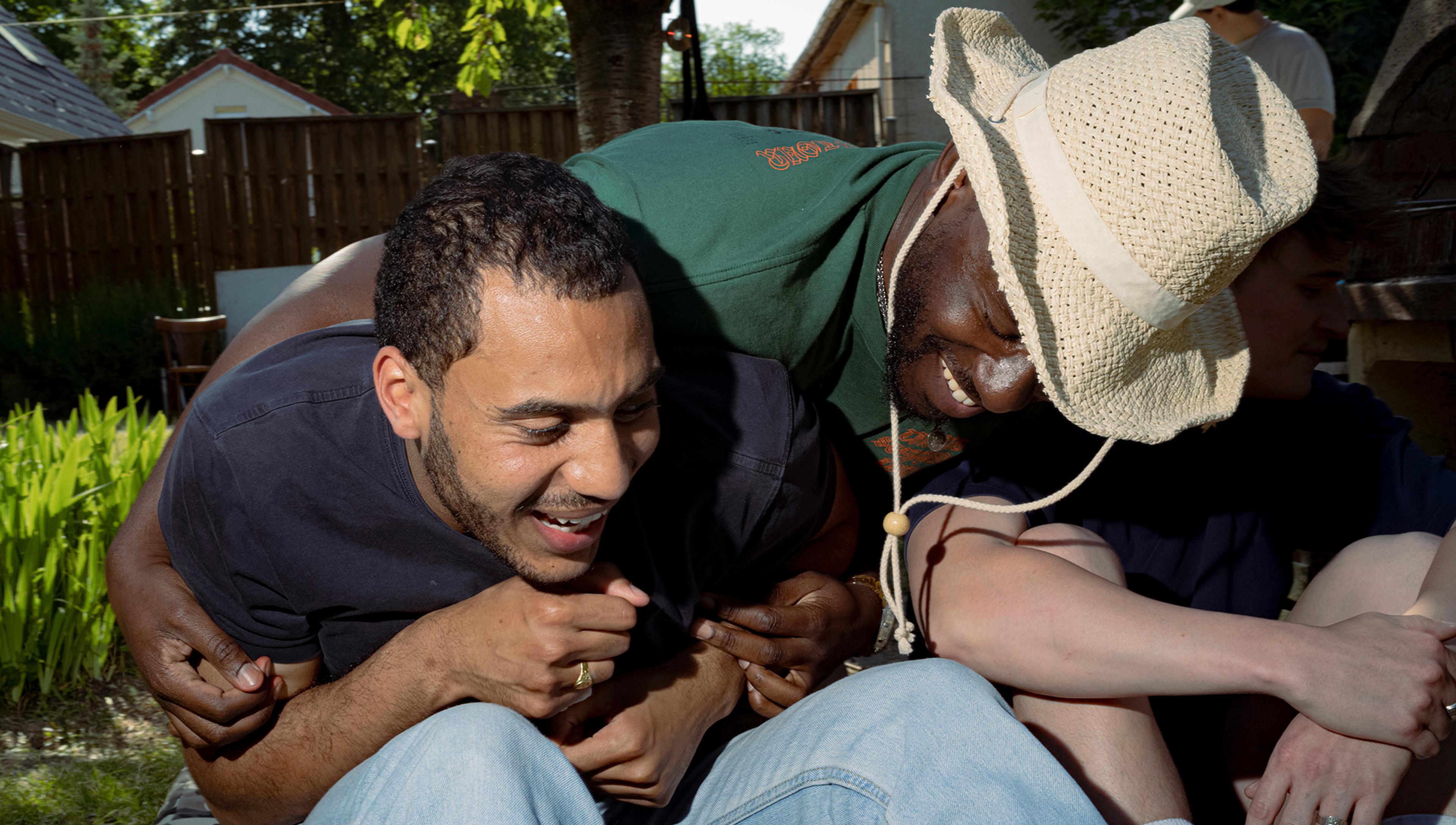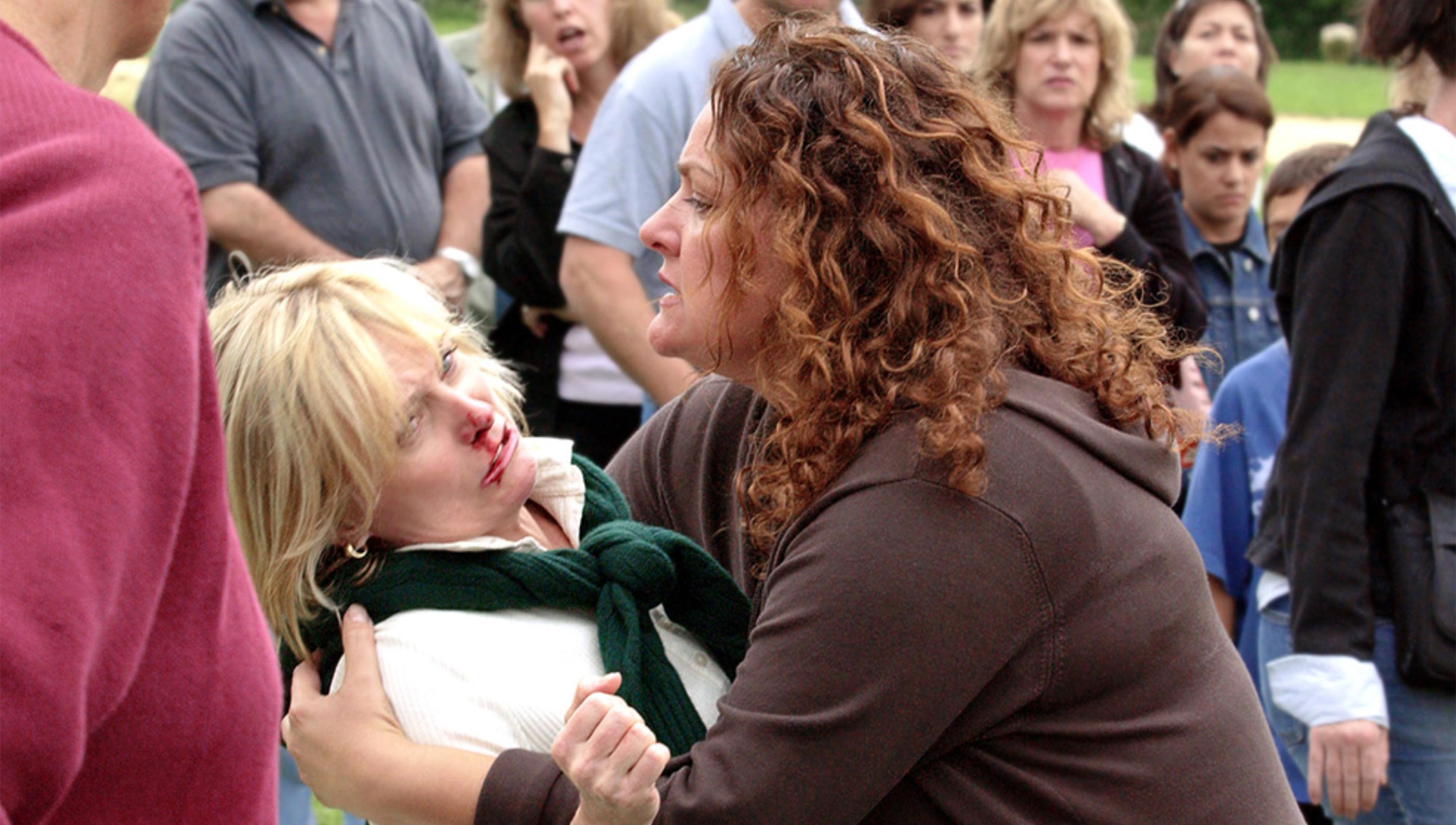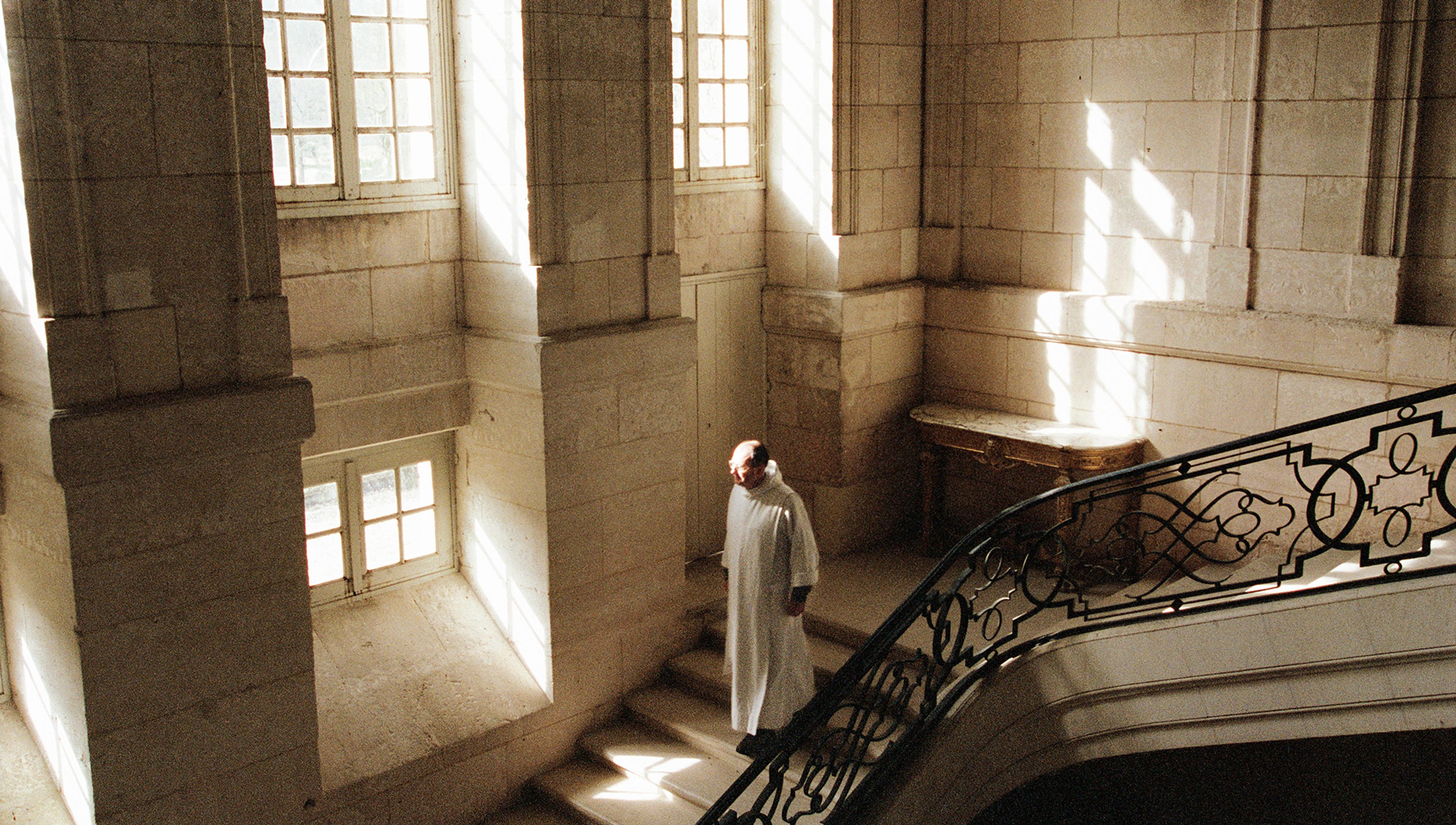Grounded in hope, Emil Utitz’s ‘as-if philosophy’ allowed him to transcend the non-human world of the Theresienstadt ghetto
The Austrian musician and poet Leo Strauss (1897-1944) called Theresienstadt the ‘as-if town’. Constructed by the Nazis, it was a temporary station for Jewish prisoners on the way to other concentration camps. But it also had propagandistic use: elderly Jews were imprisoned there with a café, university, library, even an opera. It was a home for Jews, ‘donated’ by the Nazis, a way for them to deceive the international public about the genocide they were conducting. Theresienstadt was an illusion: the trappings of a cultured town masked its murderous raison d’être. As Strauss put it in his poem ‘Als-ob’ (‘As-if’):
There is a coffee house there
just like the European Café
and with music playing
you feel there as-if …
There the people bear a heavy fate
as if it were not so heavy
and speak of a better future
as if it were tomorrow.
More than 30,000 people died in Theresienstadt and a further 88,000 were deported to other extermination camps.
In 1942, the Czech-German philosopher Emil Utitz, 59 years old, was made an inmate of Theresienstadt. It was here, in this as-if town, that he formulated his most original philosophy – indeed the deceptive nature of Theresienstadt served as a kind of foundation for his thought. Utitz experienced his time in Theresienstadt as an ‘experiment’ that probed this question: how can one’s humanity be salvaged under such dehumanising conditions? Utitz sees the ability to act, to step out of the causal chain of events and create a new sequence of events as the essence of humanhood. In this sense, the concentration camp is a non-human world, in which one is denied the possibility of starting a new chain of action and reasonably predicting its consequences. In such circumstances, how can one remain fully human? The answers he offered linked imagination, fiction and reality.
The idea that fiction is necessary for a proper adjustment to reality was common in philosophical thought of the 1930s and ’40s. Hans Vaihinger, the German scholar of Immanuel Kant, claimed that fictions are not aberrations of reality, but the very essence of our relationship to it. Writing in The Philosophy of ‘As If’: A System of the Theoretical, Practical and Religious Fictions of Mankind (1911), he observed that people commonly act on presuppositions that they know to be false. According to Vaihinger, even scientists approach reality with their imagination working full-time. Think, for instance, of the ‘atom’ defined as a ‘centre without extension’. Notwithstanding the contradictory nature of this definition, the concept itself has proven useful, a fictive tool that allows us to deepen our knowledge of non-fictive reality. Or take Adam Smith’s economic theory, which is built upon the assumption of egoistic behaviour. Smith knew that humans are not exclusively egoistic, but establishing this one-sided presupposition led to insights he would have missed otherwise.
Freedom doesn’t lie exclusively in heroic acts, but rather in the simple courage to remain conscious
Vaihinger’s philosophy complemented Strauss’s poem ‘As-if’, and Utitz adapted both to his own thinking, using them in his book The Psychology of Life in the Concentration Camp Theresienstadt, written after liberation. Utitz maintained that the ability to transcend one’s present situation is humankind’s seminal skill, necessary both for clear thinking as well as bare survival. In his words, to ‘ad-just’ – that is, to ‘do justice’ to whatever situation one finds oneself in – requires maintaining a kind of distance from it. For Utitz, this distance requires ‘fictions’ – in fact, one can’t experience the world without a certain amount of fictive distance. The world is never experienced in a direct and unmediated way: relinquishing imagination means relinquishing reality. That means, ultimately, that humans are never fully determined by their present situation, because there’s always an element of fictive distance. Here is the germ of how Utitz thought one remained human in a non-human world.
In a concentration camp, few concepts seem as fictive as freedom. Yet in Utitz’s thinking, it is exactly on this freedom – however unreal it might seem – that humanity itself depends. Here, Utitz doesn’t stand alone. Viktor Frankl, another inmate at Theresienstadt (later deported to Auschwitz), emphasised that, paradoxically, the camp offered an experience of freedom in its bare state. In Man’s Search for Meaning (1946), Frankl wrote:
Every day, every hour, offered the opportunity to make a decision … which determined whether or not you would become the plaything of circumstance, renouncing freedom and dignity to become molded into the form of the typical inmate.
But Utitz didn’t go so far. For him, freedom is not only the ability to find a crack in the ‘coerced community’ (as his fellow inmate and scholar H G Adler called it) and escape its grim determinism. For freedom to be real, it is essential to harbour hope that one can influence the world. That is, not only is freedom the ability to begin a new chain of events, but it’s the hope that one might be able to do so. And if, as Frankl observed, one touches upon life and death with even the most mundane acts, then one’s freedom is severely hampered. A freedom everyone can partake in derives from prosaic, rather than a dramatic, reality – from the possibility of making decisions without fearing fatal consequences.
Utitz approaches his situation, and his freedom, from a phenomenological perspective: he focuses on how consciousness appears to work. From this vantage, for Utitz, freedom is also the ability to remain conscious of one’s suffering. If one succeeds in this, one can also become conscious of the fact of perceiving the situation from a certain perspective and that, therefore, one is not inseparable from one’s torment. Consciousness of suffering is itself distance from suffering – even freedom from it. The essence of freedom doesn’t lie exclusively in heroic acts of overcoming one’s situation, but rather in the simple courage to remain conscious. That’s how one keeps one’s humanity.
Both Frankl and Utitz take up the concept of a ‘provisional existence’. In a situation deemed provisory, a person lives as if she truly believes that, despite present suffering, one day she’ll be able to return to her normal life. As Utitz put it in an essay in 1948:
Man accepts the present situation while he at the same time distances himself from it, and thus, he is not devoured by it … He is able to maintain normal life exactly because he does not consider the given situation, and the offensive reality does not offend him.
Surviving a concentration camp is one thing – surviving one’s survival is quite another
Realising that one’s current situation is only a fragmentary and partial prelude to a future – hopefully a better future – is, for Utitz, a profoundly intellectual enterprise: it is an achievement of clear and careful thinking, the task of philosophising itself.
Perhaps surprisingly, Utitz accepted the Nazi’s claim that Theresienstadt was a gift to the Jews. He emphasised that besides forced labour, inmates had the opportunity to participate in diverse works: cultivating the café, teaching children, offering lectures, playing music. He consistently refused the view that participation in the cultural life of Theresienstadt amounted to collaboration. For Utitz, taking part in the Theresienstadt community was a chance to act ironically, and therefore cultivate vigilance of one’s own self and one’s own environment, rather than being immersed in it and lost in it. Irony is the means of gaining a fictive distance from one’s situation.
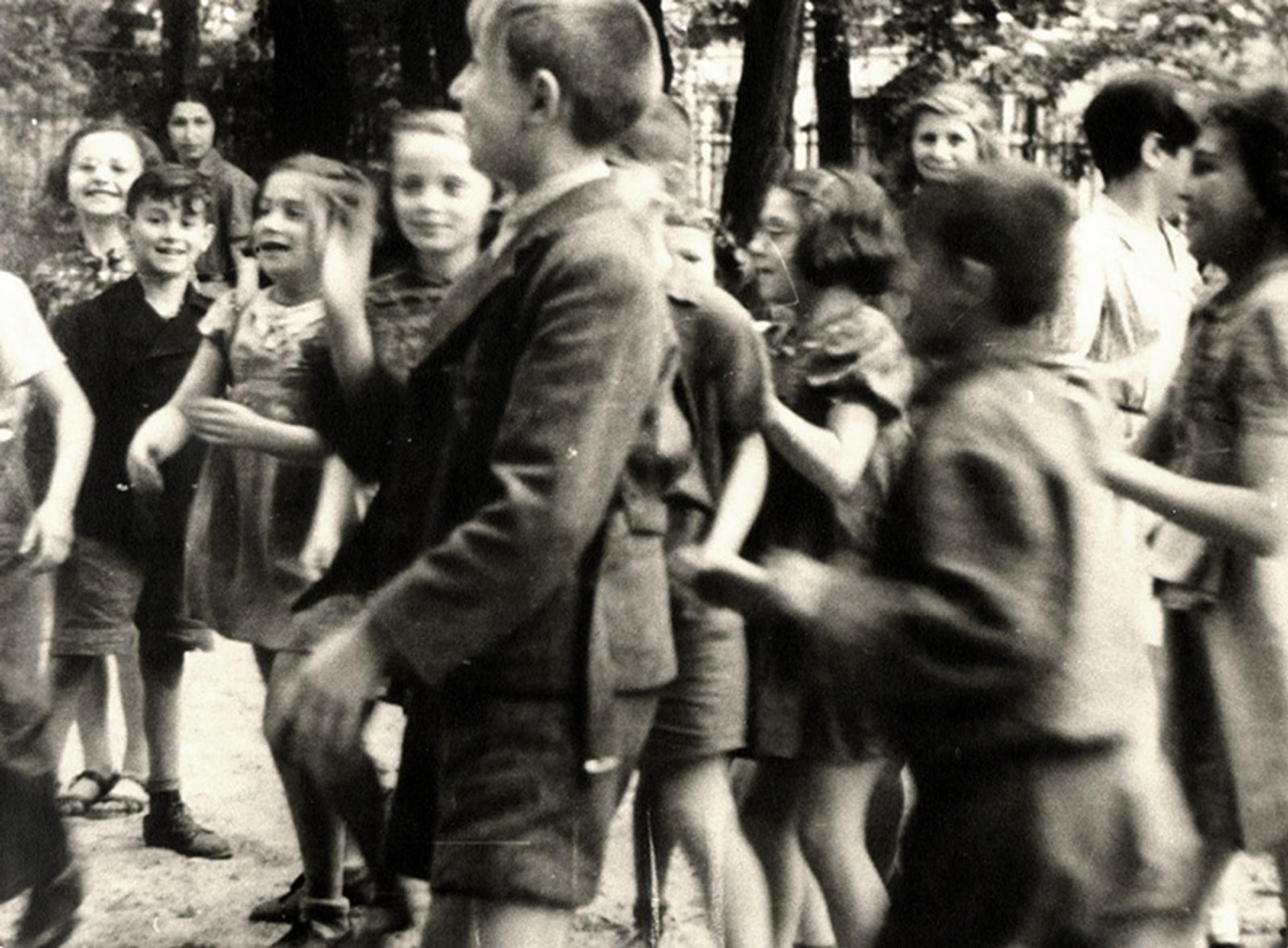
In Theresienstadt, Utitz’s as-if philosophy acquired a strange and literal meaning in the matter of money. The inmates had their own currency, and even though, as he wrote, it was ‘the worst currency on Earth’, nevertheless, it worked. Just as other currencies, the as-if currency lived from the trust of its users, and the inmates’ trust was eminently real. When the Red Army captured Theresienstadt, the Soviets recognised the value of the inmates’ currency and exchanged the as-if currency for real money, making a brittle bridge for the inmates to cross, moving from the ‘as-if’ town to a ‘real’ town.
It would be false to present this end as a happy one, even though liberation was a jubilant moment. As Edith Eger, a survivor of Auschwitz and follower of Frankl, showed in her memoir The Choice (2017), surviving a concentration camp is one thing – surviving one’s survival is quite another. Eger, Frankl and Utitz survived both the camp and the trauma. It might be that the playful, at times naive, will for meaning (even faith in meaning) was their way of imaginatively surviving a deadly reality.
A final note. Utitz’s approach is remarkable in its spiritual emphasis on finitude, rather than infinitude. In certain times, we need horizons not in order to see further, but to see clearer the here and now. Finitude is solace. Failing to see the inherent finitude of every situation is as fatal as failing to see that there is more to human life than natural causality or coerced community. For Utitz, hope is the effort to understand one’s finitude, the effort to deepen one’s sensitivity to it. This very sensitivity to finitude, nourished by fictive elements, is a means to salvage one’s consciousness, a means to salvage one’s life.
